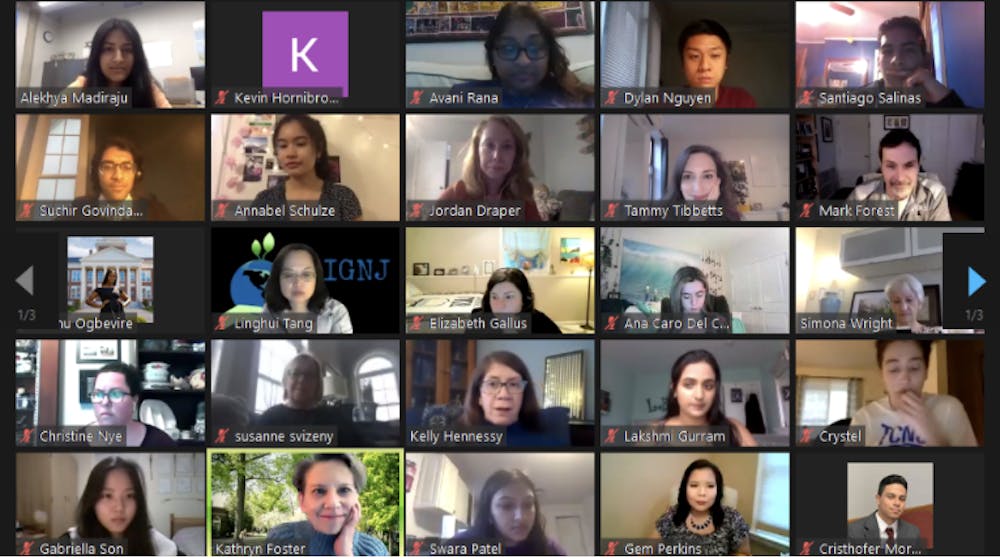By Kevin Hornibrook
Staff Writer
Student Government and the Office of Intercultural Engagement held a virtual open forum on March 25 for Asian American students to discuss their thoughts and experiences.
The event comes in the wake of the March 16 shooting in Atlanta that took the lives of eight people, six of whom were Asian women, and amidst growing anti-Asian sentiments during the Covid-19 pandemic.
Terms like “China Virus” or “Kung Flu” along with conspiracies claiming the virus was an engineered Chinese bioweapon that escaped a lab have been perpetuated by high profile figures, namely former President Donald Trump, and used to vilify Asian Americans.
Student Government’s Vice President for Diversity, Equity and Inclusion Alekhya Madiraju posed questions for anyone to answer ranging from questions on their experience throughout the pandemic to what students have noticed and dealt with at the College. Over 100 people were in attendance including students, faculty and administrators.
“Here and now, we have to surround our TCNJ community members and listen while simultaneously confronting our own biases and become a community of awareness, action and allyship,” said Marvin Carter, Associate Director of Intercultural Engagement and Inclusion, in a statement to lead off the forum.
Students pointed out their growing fears over the last year. New Jersey has not yet made 2020 crime statistics public, but data from New York City shows the amount of hate crimes directed at Asian individuals reached unprecedented totals last year.
“I was scared for two reasons: one because of the pandemic, but two because… if I go out I could get killed, or beaten up, just because I’m Asian,” said junior elementary education and English dual major Gabriella Son.
Other students shared frequent struggles they face, such as feeling alienated, said freshman political science major Ryan Lin, who was once told “You guys are Americans, but you aren’t Americans Americans.”

Sophomore psychology major Annabel Schulze mentioned that she is not bothered in public when she is out with her white father, but is often harassed when she is out with her Korean mother.
Generational differences were noted by several students. Some parents have the mindset that their children should not draw too much attention and stay silent. Freshman political science major Kim Abbas, who is Pakistani American, recalled her father rationalizing racism directed toward them as understandable. Multiple students felt that their parents have tried to enforce the notion of the “model minority.”
Some found issues in what the College does to avoid and address the struggles of Asian American students.
“I wish at TCNJ there were more opportunities for us [for financial aid],” Son said. “I wonder if this model minority myth makes people think we’re more likely to recover from our economic hardships.”
Others were bothered that professors did not mention the Atlanta shootings despite talking about the Capitol Hill riot and Black Lives Matter protests in previous classes, making issues faced by Asian Americans feel less important in the classroom.
There was a call for the College to add more opportunities in the field of Asian American studies, whether through more courses or an entire major, to take a step toward combating prejudice in education.
“I don’t need you to post yellow squares and post resources…” Son said. “Don’t ask where we’re from. Don’t say our English is so good. Talk to us like you talk to other Americans. Don’t change the conversation just because someone looks like I do.”
While the forum comes after a tragic event and highlighted unique struggles, students still expressed hope and gratitude that this platform was being offered.
“I’m really glad that now we’re starting to speak up and bring awareness to something that’s long overdue,” Lin said.
Any student on campus who is the victim of a bias incident or hate crime can report the incident using the College’s public report form.







